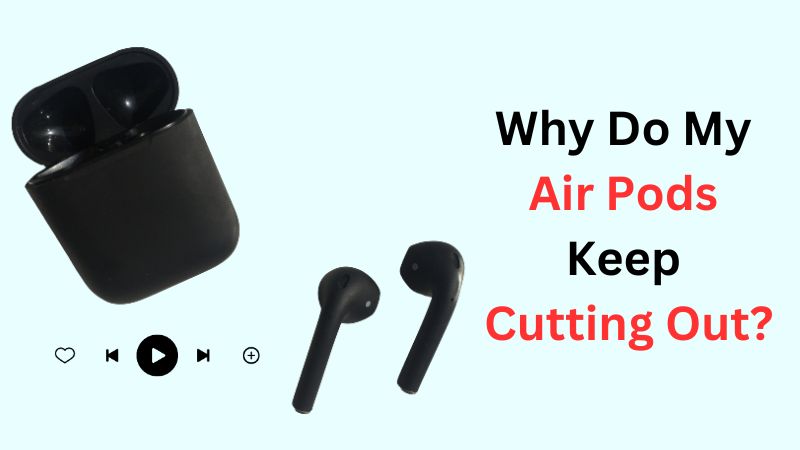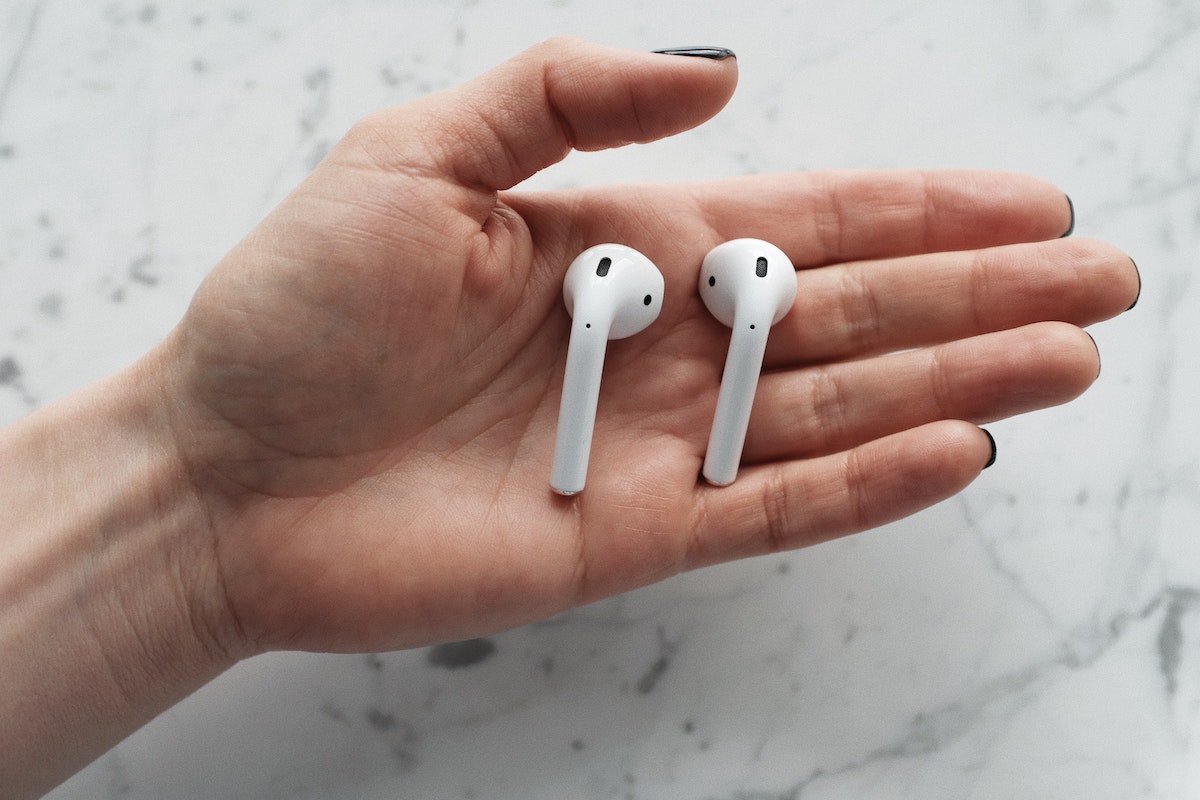Wondering if you can sleep with AirPods in? The short answer is yes, you can. However, while it may be convenient to do so, there are a few things to consider before drifting off to dreamland with these wireless earbuds in your ears. In this article, we will explore the potential benefits and drawbacks of sleeping with AirPods, as well as provide some tips and precautions to ensure a comfortable and safe experience. So, if you’re curious about whether or not you can sleep with AirPods in, keep reading to find out all the details.
Table of Contents
- 1 Can You Sleep with AirPods In? Exploring the Pros and Cons
- 2 Frequently Asked Questions
- 2.1 Can you sleep with AirPods in?
- 2.2 Why is it not recommended to sleep with AirPods in?
- 2.3 Can wearing AirPods while sleeping affect sound quality?
- 2.4 Are there any potential health risks associated with sleeping with AirPods in?
- 2.5 Are there any alternatives to sleeping with AirPods in?
- 2.6 Can I use AirPods as an alarm while sleeping?
- 3 Final Thoughts
Can You Sleep with AirPods In? Exploring the Pros and Cons
Ever since Apple released its revolutionary wireless earbuds, AirPods, they have become incredibly popular among music lovers, fitness enthusiasts, and everyday users alike. With their sleek design and seamless connectivity, AirPods have quickly become a must-have accessory for many. But one question that often arises is whether it is safe and comfortable to sleep with AirPods in. In this article, we will explore the topic in detail, discussing the pros and cons of sleeping with AirPods and providing some helpful tips for those who choose to do so.
The Pros
Many individuals find the idea of sleeping with AirPods in to be appealing for a variety of reasons. Let’s take a closer look at some of the potential advantages:
1. Sound masking: Sleeping in a noisy environment can be a challenge for some people. AirPods can help drown out unwanted noise, creating a more peaceful and relaxing sleeping environment.
2. White noise and sleep aids: Some individuals find it easier to fall asleep while listening to soothing sounds or sleep aids such as rain sounds, ocean waves, or calming music. With AirPods, you can easily access these sounds and customize your own sleep playlist.
3. Convenience: Wireless technology allows for freedom of movement during sleep. Unlike traditional wired headphones, AirPods eliminate the risk of entanglement or discomfort caused by the headphone cord.
The Cons
While sleeping with AirPods can have its benefits, there are also some potential drawbacks to consider:
1. Discomfort: AirPods are not specifically designed for sleeping, so some users may find them uncomfortable to wear for extended periods while laying on their side or their back. The hard plastic casing and the earbud shape might dig into the ear and cause discomfort or pain.
2. Safety concerns: There is a risk of accidentally damaging or losing the AirPods while sleeping, especially if you tend to move around a lot during the night. Additionally, if you share a bed with a partner or have pets, there is a possibility of tangling or damaging the AirPods while sleeping.
3. Ear irritation and infection: Wearing AirPods for extended periods, especially while sleeping, can lead to increased moisture and warmth in the ears. This environment may be favorable for the growth of bacteria or fungi, potentially leading to ear irritation or infection.
Tips for Sleeping with AirPods
If you still decide to give sleeping with AirPods a try, here are some tips to make the experience more comfortable and safe:
1. Choose the right size: AirPods come with different-sized silicone ear tips. Experiment with the available sizes to find the one that fits your ears comfortably and securely. This can help reduce discomfort and prevent the AirPods from falling out while you sleep.
2. Keep the volume low: Listening to loud music or sounds for extended periods can damage your hearing. To protect your hearing health, keep the volume at a reasonable level while using AirPods for sleep.
3. Take breaks: It’s important to give your ears a break from wearing AirPods for an extended period. Try to remove them for a few hours each day to allow your ears to breathe and prevent potential irritation.
4. Keep your AirPods clean: Regularly clean your AirPods and their charging case to remove any dirt, wax, or debris that may accumulate. This will help prevent ear irritation and maintain the longevity of your AirPods.
5. Consider alternatives: If sleeping with AirPods proves to be uncomfortable or risky for you, consider using alternative sleep aids such as white noise machines, sleep headphones specifically designed for comfort during sleep, or room humidifiers for soothing background noise.
In conclusion, sleeping with AirPods can be a personal choice, with both advantages and disadvantages to consider. While they can provide sound masking, convenience, and access to sleep aids, there are also potential discomfort, safety, and hygiene concerns. If you decide to sleep with AirPods, following the provided tips can help mitigate some of the risks and enhance your overall sleep experience.
Remember, it is always important to prioritize your comfort and safety when making decisions about your sleep routine. If you experience any discomfort or irritation while sleeping with AirPods, consult with a healthcare professional.
Can u sleep with AirPods?
Frequently Asked Questions
Can you sleep with AirPods in?
Yes, it is possible to sleep with AirPods in, but it is not recommended for several reasons.
Why is it not recommended to sleep with AirPods in?
Sleeping with AirPods in can lead to discomfort and potential damage. The earbuds are not designed to be worn for extended periods, and wearing them while sleeping can cause pressure and soreness in the ears.
Can wearing AirPods while sleeping affect sound quality?
Wearing AirPods while sleeping can impact sound quality. The position of the earbuds may change during sleep, affecting their fit and causing a reduction in sound quality or even a complete loss of audio.
Are there any potential health risks associated with sleeping with AirPods in?
While there is no concrete evidence of serious health risks, sleeping with AirPods in can increase the risk of ear infections and irritations. Continuous use may also lead to earwax buildup, which can affect hearing and the performance of the AirPods.
Are there any alternatives to sleeping with AirPods in?
Yes, there are alternatives to sleeping with AirPods in. Consider using a white noise machine or a sleep-friendly app on your phone to help with relaxation and falling asleep without the need for headphones.
Can I use AirPods as an alarm while sleeping?
Yes, you can use AirPods as an alarm while sleeping. Simply set an alarm on your paired device, and the sound will play through the AirPods when it goes off. However, be cautious about sleeping with the AirPods in for prolonged periods due to the aforementioned discomfort and potential health risks.
Final Thoughts
Sleeping with AirPods can be comfortable for some people, as the design of these wireless earbuds allows for a snug fit. However, it is important to consider potential risks and drawbacks. The hard plastic body of AirPods may cause discomfort if you sleep on your side. Moreover, wearing them for extended periods can lead to ear pain and increased risk of ear infections. Additionally, the potential for damage to the AirPods themselves should not be overlooked. So, while it is possible to sleep with AirPods in, it is recommended to exercise caution and prioritize your comfort and safety.


